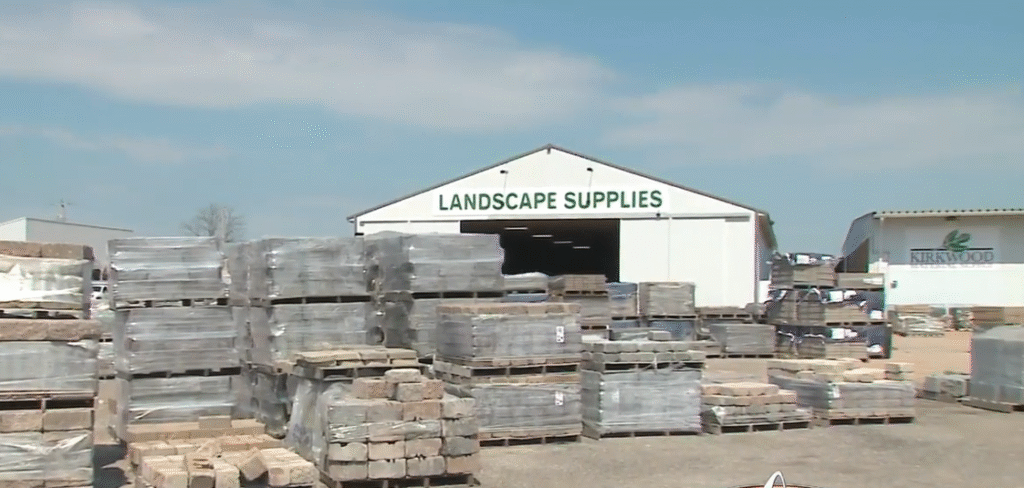Being an unfunded business, Kirkwood Material Supply’s net worth is unknown, although revenue projections indicate that it makes about $12.7 million a year. This amount is small in comparison to publicly traded behemoths like SiteOne Landscape Supply, which have a market valuation in the billions, but it shows how well their business strategy works to maintain long-term relevance through specialization and dependability.
Instead of being a spectacle, Kirkwood’s financial worth is a story of consistency. By concentrating on providing contractors, landscapers, and homeowners with incredibly efficient material supplies, the business has established trust that is difficult to duplicate. Kirkwood’s stone and concrete have shaped driveways, patios, and retaining walls throughout St. Louis for many years. Whether it’s a residential backyard or a public park walkway, every finished project adds to its hidden wealth and is ingrained in infrastructure that subtly endures for generations.
The partnership formed when SiteOne Landscape Supply integrated Kirkwood into its broader structure was remarkably reminiscent of the way boutique fashion houses work with international distributors. Kirkwood’s local authenticity remained intact, but it was able to reach a wider audience and deliver its expertise much more quickly. Because scale and craftsmanship were combined without losing their essence, this move was especially advantageous for contractors overseeing several projects.
Kirkwood Material Supply – Bio Data and Company Overview
| Category | Information |
|---|---|
| Business Name | Kirkwood Material Supply, Inc. (part of SiteOne Landscape Supply) |
| Founded | 1983 (Des Peres, Missouri) |
| Industry | Natural Stone, Concrete, Masonry, Landscaping Materials |
| Headquarters | 800 South Fillmore Ave, Kirkwood, Missouri, USA |
| Estimated Revenue | Approximately $12.7 million annually |
| Employees | Around 16–20 staff members |
| Ownership | Private company, acquired by SiteOne Landscape Supply |
| Service Region | Greater St. Louis, Missouri, with multiple branches |
| Core Products | Retaining walls, pavers, bulk mulch, gravel, sand, concrete, masonry, lumber |
| Strengths | Reliable delivery, expert guidance, strong regional reputation |
| Website | Kirkwood Material Supply |

Clients regularly comment on how Kirkwood’s employees deliver incredibly clear guidance, converting technical aspects like stone matching, drainage, and frost resistance into useful insights. A simple transaction becomes a considerate collaboration with this human touch. Contractors appreciate not only the content but also the accompanying advice, which has significantly increased project efficiency and decreased expensive errors.
In the larger framework of construction economics, Kirkwood’s wealth serves as an example of how small, highly adaptable suppliers can coexist with industry titans. Kirkwood developed relationships to foster loyalty while corporations strive for market share. During times of disruption, like the pandemic, when homeowners made significant investments in outdoor living, that loyalty proved to be exemplary. As the demand for patios, fire pits, and garden stonework increased, Kirkwood was able to adapt with a degree of flexibility that is frequently difficult for larger businesses to match.
Because Kirkwood’s financial resilience is based on balance, it is especially inventive. From seasonal goods like mulch and salt to structural necessities like treated lumber, their product lines cover it all. Revenue flows consistently across a range of needs thanks to this flexibility, which guarantees it is not dependent on any one trend. Like a chef choosing the best ingredients to ensure flawless dishes, they provide contractors with products they can rely on by utilizing strong sourcing and meticulous quality control.
The company’s contribution goes beyond its earnings. Landscapes constructed with Kirkwood’s products boost real estate values, promote community pride, and stop environmental harm like erosion. This impact on society is a type of wealth that cannot be quantified by financial statements. A public pathway could transform how communities use common areas, a patio could serve as the focal point of family get-togethers, and a retaining wall constructed with Kirkwood’s stone could stop flooding.
Kirkwood’s hidden financial strength is found in its dual identity, as demonstrated by comparisons with national leaders such as SiteOne. It has the efficiency of a national distributor while keeping the closeness of a local supplier. Long-standing client relationships have been maintained even after acquisition thanks in large part to this model. In an industry where delays can have disastrous financial consequences, Kirkwood’s exceptional durability is demonstrated by the fact that orders arrive precisely packed, deliveries are made on time, and changes are handled with minimal disruption.
Kirkwood’s financial impact is evident from its footprint, even though its net worth is not made public. This company’s materials are used in suburban backyards, parks, commercial developments, and schools. Every installation turns into an enduring reminder of its contribution to Missouri’s identity. This unseen presence bears a striking resemblance to infrastructure firms whose names are unknown to the general public but whose influence is felt instantly.

